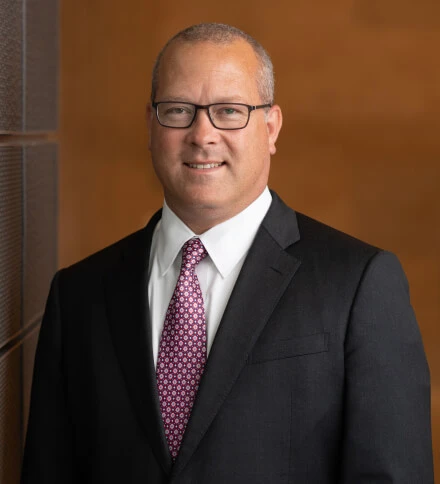FAQ About Criminal Defense
If you’re facing criminal charges, you probably have a few questions. Learning more about criminal law and criminal defense can help you answer those questions. It can also ease some of your apprehension and prepare you for the road ahead.
Here at Cole Paschall Law, we’ve spent years fighting for our clients. We believe that everyone deserves justice, and we strive to get you the top possible outcome. If our FAQ for criminal defense doesn’t answer your questions, contact our office for more assistance.
Frequently Asked Questions
Why Should I Obtain a Bail Bond Through Cole Paschall Law?
Our firm can help you bail a loved one out of any jail across Tarrant County. To make the process easier for you, we quote all attorney fees and recurring payments via phone. Traditional bail bondsmen require that you hire a lawyer immediately after release. By obtaining bail bonds through Cole Paschall Law, you don’t have to pay twice!
I’ve Been Arrested for DWI? What Should I Do Next?
Failure to pass the breath test could result in arrest and suspension of your driver’s license after 40 days. Consult with a DWI defense attorney as soon as possible. You need an experienced lawyer in your corner if you’ve been arrested and/or your goal is to get the charges against you dropped. You driving privileges are riding on the outcome of your case. You might also be eligible for an occupational license within 30 days of you being charged. If you have considered filing an occupational license request with the civil court, we encourage you to do so immediately.
Should You Talk to the Police?
When the police arrest someone, they listen to everything the individual says. In some cases, those words are used against them in court. For that reason, you should avoid talking to the police. You should wait until your Fort Worth criminal defense attorney is by your side.
Some people worry that asking for an attorney makes them look guilty. But this is not the case. In fact, some police officers ask for attorneys after they are charged with a crime. They understand that a lawyer can prevent you from making an incriminating mistake.
You should not, however, be rude to the police. You should try to exercise civility and good manners before, during, and after the arrest. There’s no reason to aggravate a bad situation. You can simply ask to speak with your attorney and leave it at that. If they persist, remain silent.
What Happens During the Arraignment?
The arraignment will be your first court appearance. Even if you haven’t been formally arrested for the crime that you’ve been accused of, you will have an arraignment if you’re charged with a crime. The purpose of the proceeding is to formally read you your charges. After you hear them, your attorney must offer a plea.
In Texas, the arraignment also determines whether or not you can be released on bail. The judge makes the decision and will also set the amount of bail they deem fair. If someone pays the bail, you can leave police custody. However, that freedom may only be temporary. You still need to show up for your trial, and if you’re convicted, you can be sentenced to incarceration.
The individual who posts bail will get some of their money back as long as you make it to the trial. But they only receive a percentage. Typically, there is a premium of as much as 10% of the bail amount charged by the courts.
When Can a Plea Deal Happen?
The Majority of criminal cases end with a plea deal. The discussions for this can occur during a pretrial conference. At this conference, the defense attorney meets with the judge and the opposing party.
Your lawyer can talk about a potential plea bargain with the District Attorney. As a result, you may be able to plead guilty to a lesser charge or they may reduce your charge from a felony to a misdemeanor crime. If this happens, your case may not go to trial. This is commonly referred to as “plea bargaining” and the result is a “plea deal.”
What Occurs During a Trial?
Every trial is unique but must go through the same process. First, there are the opening statements from each party. Then, the prosecution presents its evidence. The defense has an opportunity to cross-examine the prosecutorial witnesses and bring forward their own witness, which can be cross-examined by the prosecution. Finally, there are the closing statements.
At the end of the trial, the judge or jury deliberates on the case and gives a verdict of guilty or not guilty. If it was a jury trial and the jurors were not able to decide on a unanimous verdict, the case is a mistrial.
The duration of the trial varies greatly. In some straightforward cases, the proceedings are short. Other cases can take months or even years. The amount of evidence in the case, the severity of the charges, and court schedule can all impact the timeline.
Do You Need a Fort Worth Criminal Defense Attorney?
If you listen to the Miranda Warning, you’ll hear that you have a right to an attorney, which we highly recommend. Another one of your constitutional rights is the right to a fair trial. By working with a Fort Worth criminal defense attorney, you can make sure the odds aren’t stacked against you.
Whether you’re charged with a misdemeanor or a felony, you should consider working with a lawyer. In either case, the defendant has a lot to lose. Working with an attorney can help you protect your rights. It can also prepare you for the long road ahead.
They can do all of the following:
- Explain more about your charges
- Come up with defense strategies tailored to your case
- Discuss the consequences and benefits of a plea bargain
- Prepare you for your pre-trial, trial, and sentencing hearings
If you claim you can’t afford a lawyer, the court will appoint a public defender. However, this may not be in your top interest. Your attorney may simply not have enough time for you.
Working With Our Firm
Cole Paschall Law has the resources it takes to get results. With our years of experience, we know how to handle all types of criminal cases. Regardless of how simple or complex your case may be, we’re ready to work on it. Contact us today and we can get started.
What Types of Criminal Cases Do You Handle?
Our firm takes on a broad range of criminal matters, including:



